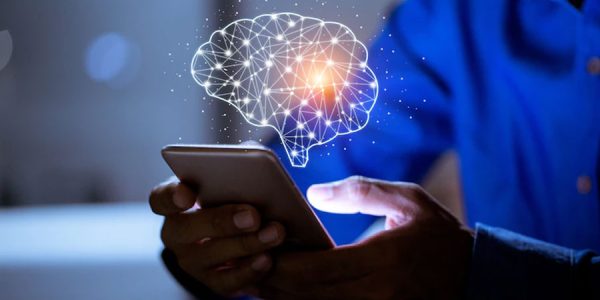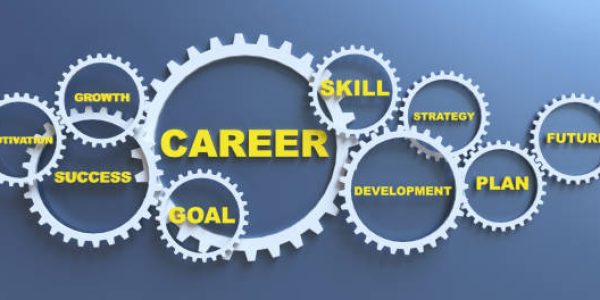
An e-learning career counseling course is an online program that provides training and guidance to individuals interested in pursuing a career as a career counselor. The course covers a wide range of topics related to career counseling such as career development theories, career assessment tools, career planning, and job search strategies.
The advantage of an e-learning career counseling course is that it allows learners to access the course materials from anywhere and at any time, making it a convenient option for students who have other commitments. The course is also self-paced, which means that learners could complete the course at their own pace.
After completing the course, learners would have the knowledge and skills to work as career counselors in a variety of settings, including schools, colleges, career centers, and private practice. The career counseling profession is growing, and an e-learning career counseling course is an excellent way to get on the path towards a fulfilling career that helps others achieve their goals.

A communication skills course is an essential tool that helps individuals improve their ability to effectively communicate with others in a variety of settings. The course typically covers topics such as effective listening, verbal and nonverbal communication, presentation skills, conflict resolution, and written communication.
In today’s world, strong communication skills are highly valued by employers, making this type of course beneficial for anyone looking to advance their career. Additionally, effective communication is crucial to building relationships, both personal and professional.
Overall, a communication skills course provides practical knowledge, insights, and tools that can be applied in various situations to improve communication and enhance interpersonal relationships. It is an investment worth considering for anyone who wants to improve their communication skills and achieve greater success in their personal and professional lives.

Leadership courses are an excellent investment for individuals aspiring to become effective leaders. Through rigorous training programs, participants acquire essential skills and knowledge necessary to lead others successfully. The course curriculum is designed to cover a wide range of topics and challenges that leaders encounter. The interactive and engaging nature of these courses help individuals develop their leadership style and apply best practices to the benefit of their teams. Some of the topics that are covered in leadership courses include communication, decision-making, delegation, motivation, conflict resolution, and team-building, among others.
Effective leadership skills are vital in organizational management, as they enable leaders to motivate and inspire their teams towards achieving common goals. However, these skills are also beneficial in everyday life, as they facilitate development of better relationships, effective communication, and problem-solving abilities. Ultimately, investing in leadership courses is a worthwhile endeavor, as it helps individuals hone their leadership skills and set themselves on a path to success.

Public speaking plays an essential role in both professional and personal lives. The art of effectively communicating ideas and thoughts to a broad audience can boost confidence and establish credibility. A public speaking course is designed to equip participants with techniques, tools, and strategies to deliver effective presentations to diverse audiences. These courses are designed to cover a broad range of topics, including speech writing, organization, delivery techniques, body language, and nonverbal communication, audience engagement, and rhetorical strategies. Participants learn about the importance of conveying their message with clarity, conviction, and enthusiasm. Moreover, in most public speaking courses, practical exercises are included to help participants sharpen their skills. These exercises range from impromptu speeches and group presentations to critiques and feedback about their performances. With increased confidence and competence gained from completing a public speaking course, individuals can communicate effectively in various situations such as business meetings, conferences, and informal gatherings. This new skill set will not only enhance their professional lives but also achieve personal goals and establish fresh opportunities.

In today’s modern age, digital skills have become a necessary tool for individuals who want to thrive in our tech-savvy world. This is where the importance of a digital skills course comes in. The course provides a comprehensive curriculum that covers a broad range of topics such as computer literacy, online safety, social media management, digital marketing, data analytics, and many more. Whether you are a student, a professional, or someone who wants to upskill, such a course will help you acquire the necessary competencies to navigate through the technology-driven world with ease.
Moreover, digital skills courses are offered both online and offline, providing flexibility in delivering the program to accommodate various learning styles and schedules. The objective of a digital skills course is simple; it is to empower individuals with knowledge and tools required to thrive in the digital age and stay relevant in a rapidly evolving technological landscape. By taking such a program, you can gain a competitive edge in today’s job market and enhance your personal and professional life opportunities. Therefore, enrolling in a digital skills course is a crucial step to develop your digital literacy and boost your career prospects.

An emotional intelligence course is a training program that helps individuals develop their ability to understand and manage emotions in themselves and others. The course typically includes modules on self-awareness, self-regulation, motivation, empathy, and social skills.
In the course, participants are taught techniques to recognize, label, and regulate their emotions to better control their behavior and communicate effectively with others. They learn how to empathize with people’s feelings and perspectives and build positive relationships.
The benefits of taking an emotional intelligence course include improved self-awareness and self-control, better communication and interpersonal skills, and higher emotional resilience. These skills can lead to increased success in both personal and professional relationships. Emotional intelligence courses can be taken in-person or online, and can help individuals improve their emotional intelligence at any stage in their lives or careers.

A self-improvement course is designed to help individuals enhance their personal and professional lives through techniques, tools, and practices. These courses can cover a wide range of topics, from personal development to leadership skills, communication skills, time management, goal-setting, and more.
The primary goal of self-improvement courses is to empower individuals to identify their strengths and weaknesses and develop strategies to overcome obstacles. They typically offer dynamic techniques that can help individuals to increase self-awareness, cultivate resilience, boost confidence, and improve interpersonal skills.
Self-improvement courses provide a supportive and motivating environment for individuals who want to make positive changes in their lives. They help participants to sustain their motivation and take the necessary steps towards their personal and professional goals. By enrolling in a self-improvement course, individuals can gain new insights, learn vital skills and tools, and discover the best version of themselves.

A career development course lays a strong foundation for individuals who aspire to achieve their career goals. These courses not only help individuals identify their strengths but also explore various career paths that align with their interests and values. Career development courses enable individuals to evaluate their potential employers by studying the industry, culture, and job opportunities in their desired field. Participants also gain insights into developing the skills necessary to succeed in their chosen career paths. These skills are diverse and range from setting up goals, crafting an impressive resume, developing interviewing skills, mastering networking, learning job searching techniques to acquiring professional etiquette to project a worldwide image.
Career development courses are designed to increase students’ self-awareness and enhance their decision-making skills to ensure they are well informed in the ever-changing job market. Students of these courses are better equipped to adapt to new technologies and remain knowledgeable about industry trends. Ultimately, these skills give participants a competitive edge to stand out in a crowded job industry, ensuring they remain on track to achieve their career objectives. By mapping out a clear career path, these courses provide a roadmap to help individuals achieve the professional success they desire. Overall, career development courses are a vital aspect of career growth.

Mindfulness courses are incredibly beneficial for individuals seeking techniques to mindfully live in the present moment. These courses offer a wide range of training programs designed to provide individuals with essential skills and techniques necessary for their personal growth. During these courses, participants engage in various activities such as guided meditation sessions, breathing exercises, and other mindfulness practices that help them to cultivate awareness, focus, and better understand their thoughts and emotions. By doing so, individuals learn to approach life situations with kindness, compassion, and avoid judgment, which helps to foster positive relationships and improves overall well-being. Mindfulness courses have been proven to have numerous benefits, including reducing stress, improving sleep patterns, increasing emotional intelligence and cognitive flexibility, and improving overall health. They are especially advantageous for people struggling with anxiety, depression, chronic pain, among other health conditions. Regular mindfulness practice allows individuals to achieve inner peace, which enables them to overcome the hurdles of everyday life more resiliently. In summary, mindfulness courses provide individuals with a unique opportunity to cultivate a mindful lifestyle, which promotes positivity, peace, and grace, even in challenging situations.
Programming: Learn the fundamentals of coding, problem-solving, and software development. Master languages like Python, Java, or C++.
Data Science: Dive into statistical analysis, machine learning, and data visualization. Gain insights from big data and make informed decisions.
Digital Marketing: Explore online advertising, social media strategy, SEO, and content marketing to boost brand presence and drive conversions.
Graphic Design: Develop skills in visual communication, layout design, and use of graphic design tools. Create engaging and impactful designs.
Web Development: Learn HTML, CSS, and JavaScript to build responsive and dynamic websites. Explore frameworks like React or Angular.
Project Management: Acquire skills in planning, execution, and monitoring of projects. Learn tools like Agile and Scrum for effective project delivery.
Cybersecurity: Understand the principles of securing digital assets, networks, and systems. Learn to identify and mitigate cyber threats.
Artificial Intelligence: Explore machine learning, natural language processing, and neural networks. Develop applications that simulate human intelligence.
Marketing Analytics: Analyze marketing data to make data-driven decisions. Utilize tools like Google Analytics and marketing automation platforms.
Human Resources Management: Gain expertise in recruitment, employee relations, and HR strategy. Learn to manage human capital effectively.
Financial Planning: Understand investment strategies, budgeting, and financial analysis. Develop skills to assist individuals in managing their finances.
Public Speaking: Hone your communication and presentation skills. Overcome stage fright and captivate your audience with effective public speaking.
Creative Writing: Explore various writing styles, genres, and techniques. Develop your voice and storytelling abilities.
Photography: Master the art of capturing moments through photography. Learn composition, lighting, and post-processing techniques.
Social Media Management: Understand social media platforms, content strategy, and analytics. Manage and enhance brand presence on social networks.
Supply Chain Management: Learn to optimize the end-to-end supply chain process. Understand logistics, inventory management, and procurement.
Mobile App Development: Develop mobile applications for iOS or Android. Learn app design, programming, and deployment.
Game Design: Dive into the world of game development. Understand game mechanics, storyboarding, and interactive design.
Environmental Sustainability: Explore strategies for sustainable living and business practices. Learn about conservation, renewable energy, and eco-friendly initiatives.
Health and Wellness Coaching: Gain knowledge in nutrition, exercise, and holistic health. Learn coaching techniques to guide individuals towards better well-being.
Computer Science: In the dynamic field of computer science, students delve into algorithms, programming languages, and the architecture of computing systems. They gain expertise in software development, artificial intelligence, and cybersecurity.
Business Administration: Business administration courses equip students with managerial skills, strategic thinking, and a holistic understanding of business operations. Topics include finance, marketing, human resources, and organizational behavior.
Psychology: Psychology courses explore the human mind and behavior. Students study topics such as cognitive psychology, behavioral psychology, and abnormal psychology to understand mental processes and address psychological issues.
Mechanical Engineering: Mechanical engineering focuses on designing, analyzing, and manufacturing mechanical systems. Students learn about thermodynamics, fluid mechanics, materials science, and the principles behind the design of machines.
Environmental Science: Environmental science courses cover the study of ecosystems, pollution, climate change, and sustainable practices. Students explore ways to address environmental challenges and promote conservation.
Nursing: Nursing programs provide the skills and knowledge needed to care for individuals and communities. Students learn about anatomy, physiology, patient care, and healthcare ethics.
Economics: Economics courses delve into the study of resource allocation, market dynamics, and economic systems. Students analyze economic policies, global markets, and the impact of economic decisions on society.
Political Science: Political science explores government structures, political ideologies, and international relations. Students study political theories, public policy, and the role of governments in shaping societies.
English Literature: English literature courses immerse students in the world of literary works. They analyze novels, poems, and plays, exploring themes, literary devices, and the historical context of each piece.
Biotechnology: Biotechnology courses cover the manipulation of biological systems for practical applications. Students study genetic engineering, bioinformatics, and bioprocessing.
Electrical Engineering: Electrical engineering focuses on the study of electrical systems and devices. Students learn about circuits, electronics, power systems, and control systems.
Communication Studies: Communication studies explore the principles of effective communication in various contexts. Students study interpersonal communication, media studies, and public relations.
Sociology: Sociology courses analyze social structures, institutions, and human behavior. Students explore topics like social inequality, deviance, and the impact of culture on society.
Graphic Design: Graphic design courses teach the principles of visual communication. Students learn about typography, layout design, and digital tools to create visually appealing and effective designs.
Architecture: Architecture programs focus on the design and planning of buildings and spaces. Students study architectural history, design principles, and sustainable architecture.
Marketing: Marketing courses cover the strategies and techniques used to promote products and services. Students learn about market research, branding, and digital marketing.
Information Technology: Information technology courses explore the management and use of information systems. Students study topics like network security, database management, and software development.
Finance: Finance courses delve into the world of financial management, investments, and economic analysis. Students learn about financial markets, risk management, and corporate finance.
Mathematics: Mathematics programs focus on the study of mathematical principles and theories. Students explore areas such as calculus, algebra, and statistics.
Health Sciences: Health sciences cover a broad range of disciplines related to human health. Students study anatomy, physiology, public health, and healthcare administration.
English Literature: Focuses on the study of literature, literary theory, and critical analysis.
History: Explores historical events, cultures, and societal developments.
Philosophy: Examines fundamental questions about existence, knowledge, values, reason, mind, and language.
Political Science: Studies political systems, governance, international relations, and public policy.
Psychology: Explores the science of the mind, behavior, and mental processes.
Sociology: Analyzes human society, social structures, and cultural phenomena.
Anthropology: Focuses on the study of human societies, cultures, and evolutionary aspects.
Communication Studies: Examines various forms of communication, including interpersonal, organizational, and mass communication.
Economics: Studies the production, distribution, and consumption of goods and services.
Fine Arts: Includes disciplines such as painting, sculpture, drawing, and digital arts.
Music: Explores the theory and practice of music, including composition, performance, and history.
Drama/Theater Arts: Focuses on dramatic literature, acting, and theater production.
Digital Media: Covers digital communication, multimedia production, and new media technologies.
Creative Writing: Nurtures writing skills in fiction, poetry, nonfiction, and other creative forms.
Cultural Studies: Examines cultural phenomena, identities, and expressions.
Women’s and Gender Studies: Analyzes gender roles, feminist theory, and issues related to women’s studies.
Religious Studies: Explores the world’s religions, their beliefs, practices, and cultural impacts.
Linguistics: Studies language structure, meaning, and linguistic diversity.
International Relations: Focuses on global issues, diplomacy, and international cooperation.
Environmental Studies: Examines the relationship between humans and the environment, including sustainability and conservation.
Computer Science: Computer Science is the study of algorithms, programming languages, software development, and the theoretical foundations of computing.
Information Technology: Information Technology involves the use of computer systems, networks, and software to manage and process information.
Software Engineering: Software Engineering focuses on the design, development, testing, and maintenance of software applications and systems.
Data Science: Data Science involves extracting insights and knowledge from data through various techniques, including statistical analysis and machine learning.
Computer Networks: Computer Networks explore the design, implementation, and management of communication networks that connect computer systems.
Artificial Intelligence: Artificial Intelligence (AI) is the study of creating intelligent agents and systems that can perform tasks that typically require human intelligence.
Business Administration and Information Technology: This combines business principles with IT strategies, preparing individuals to manage technology-related aspects in a business setting.
Mathematics and Statistics: Mathematics and Statistics involve the study of mathematical concepts, theories, and statistical methods to analyze and interpret data.
Physics: Physics studies the fundamental principles governing the natural world, covering areas like mechanics, electromagnetism, and quantum physics.
Chemistry: Chemistry explores the composition, structure, properties, and changes of matter, encompassing various branches like organic and inorganic chemistry.
Biology: Biology is the study of living organisms, including their structure, function, growth, evolution, and interactions.
Environmental Science: Environmental Science examines the impact of human activities on the environment and seeks sustainable solutions for ecological challenges.
Geology: Geology studies the Earth’s structure, composition, and processes, including the study of rocks, minerals, and natural resources.
Psychology: Psychology explores the human mind and behavior, covering areas such as cognitive processes, emotions, and social interactions.
Economics: Economics studies the production, distribution, and consumption of goods and services, as well as economic systems and policies.
Finance: Finance focuses on managing money, investments, and financial systems, including areas like corporate finance and investment banking.
Health Sciences: Health Sciences encompass a range of disciplines related to healthcare, including anatomy, physiology, public health, and healthcare administration.
Biotechnology: Biotechnology involves using biological processes and organisms to develop technologies and products for various industries.
Telecommunication: Telecommunication explores the transmission of information over long distances, including technologies like mobile communication and networking.
Management Information Systems (MIS): MIS integrates information technology with business processes, facilitating the management and use of information for organizational success.

When applying to a desired program, researching the requirements and qualifications is crucial. Ensure to follow the application process diligently and meet all deadlines with accurate documents, forms, transcripts, test scores, letters of recommendation, personal statements, and exam preparations. Respond promptly if accepted and follow necessary steps to secure enrollment, including submitting a deposit.

Woodport Road, Suite A #426 Sparta, NJ 07, New Jersey United States of America
1District Office Building, GP-6 Block, Pitampura, Delhi-110034.
Back of ilesa Garage Oshogbo Osun, Near Nigeria Vogue Media News office headquarter, 230004, Nigeria, South West.
Jefferson City, Missouri, USA
Copyright© (1990-2023) All rights are reserved by GNOU // www.gnou.in